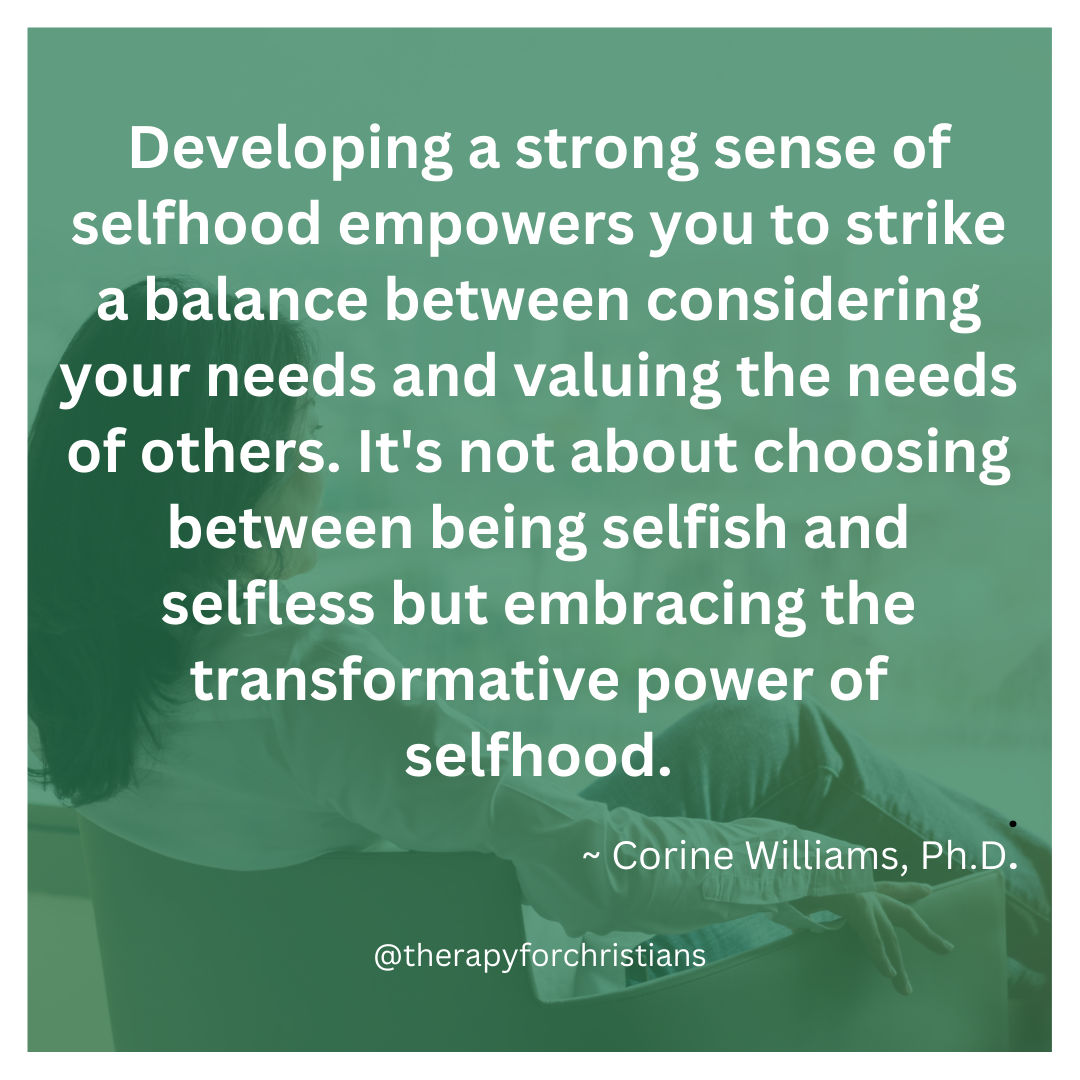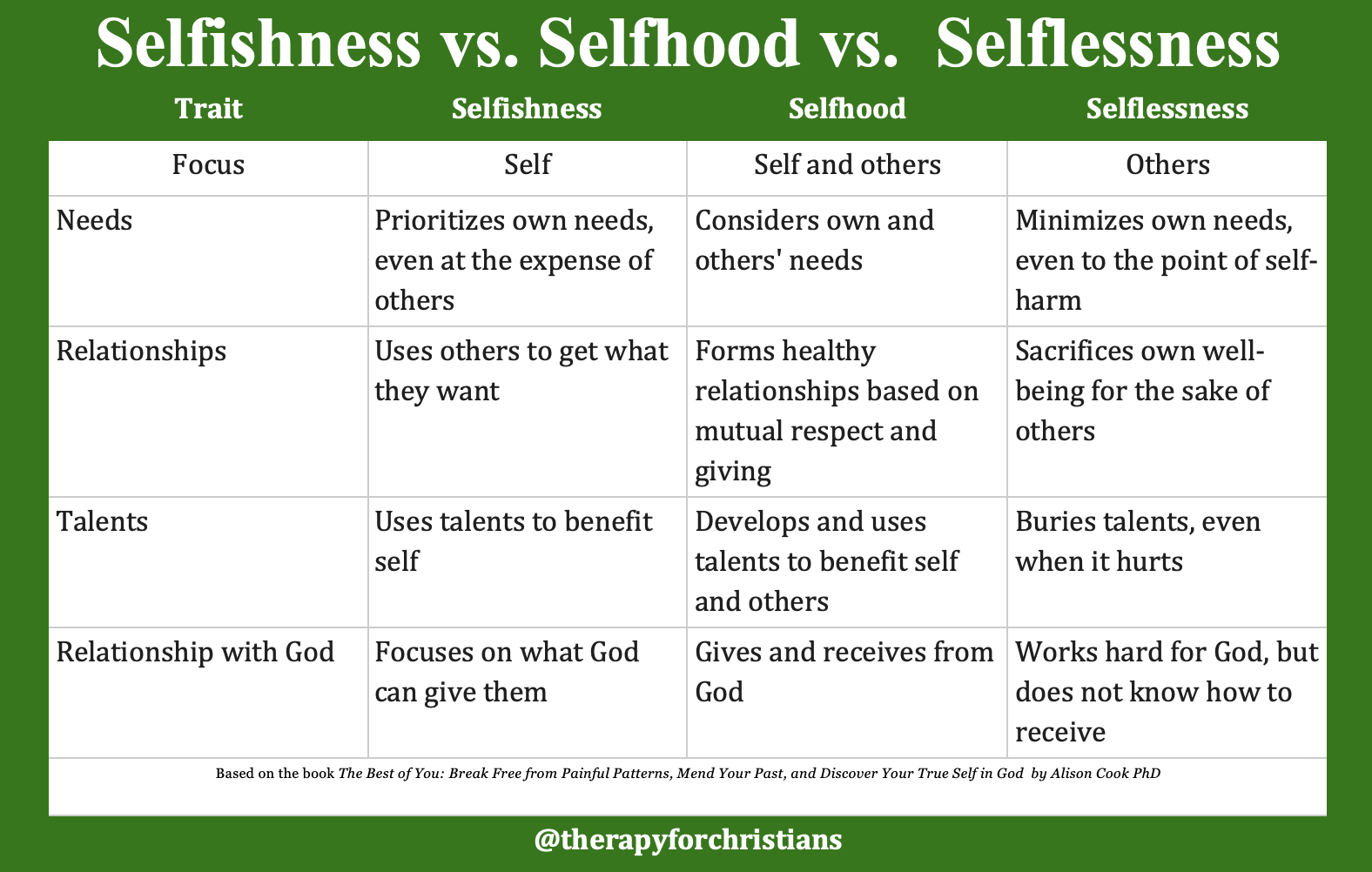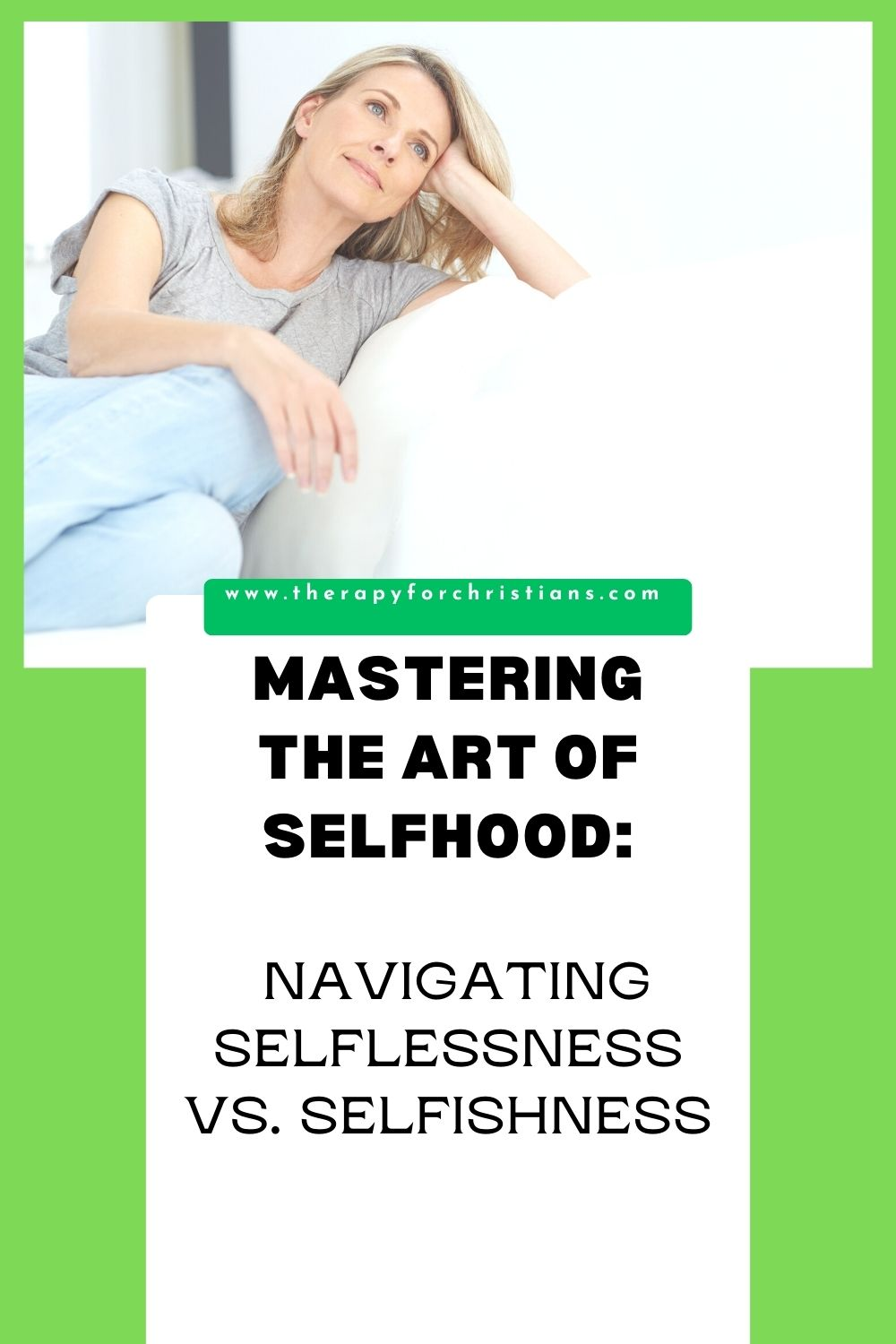
Have you ever been called selfish or selfless by anyone? These are two words that are complete opposites but none of them on their own are good for your well being. There should be a balance between the two and that is what we'll be discussing in this post.
See, in a world where societal expectations and external opinions often guide our choices, understanding the differences between selfishness Like this content on Facebook and selflessness is crucial because there will be times when you find yourself torn between prioritizing your own needs and valuing the needs of others.
Like this content on Facebook and selflessness is crucial because there will be times when you find yourself torn between prioritizing your own needs and valuing the needs of others.
Selfishness, often portrayed negatively, involves focusing on your own personal desires at the expense of those around you. On the opposite end, selflessness causes you to put others before yourself, driven by a genuine desire to contribute to their well-being. But what about finding a middle ground? One that doesn't make you neglect yourself nor forsake others? This is where selfhood comes in - selfhood is the bridge that connects our individual identity, values, strengths, and limitations.
By delving into the definitions and nuances of these concepts, we will discover the transformative power of selfhood. Just as Jesus Christ serves as the gold standard for selfhood, displaying the ability to prioritize His purpose while also caring for His well-being, we too can cultivate a strong sense of selfhood. Through the actionable steps of identifying our values, increasing self-awareness, honoring our emotions, and learning to trust ourselves, we can navigate the complex tapestry of selfhood to lead a life filled with authenticity, confidence, and purpose. So if you’re ready to live in the perfect balance of selfhood, keep reading.
SELFISHNESS vs. SELFLESSNESS vs. SELFHOOD
I was first introduced to the differences between selfishness, selflessness, and selfhood while reading The Best You by Allison Cook, Ph.D. Selfishness, selflessness, and selfhood can all have a significant impact on how we navigate our relationships, make decisions, and ultimately shape our identity. In this section, we'll go through each one in-depth, ensuring a proper understanding of each concept:
What is Selfishness
The term selfish refers to people who prioritize their own needs and desires over the needs and desires of others. A selfish person frequently practices selfish acts neglecting the impact of their actions on other people's lives. They may also manipulate conditions to get their personal or business agenda filled.
Selfish people tend to be extremely concerned with their own benefit, often at the expense of others' welfare. While this way of thinking and behaving may offer short-term gains, it can lead to negative feedback from others and damage relationships over time.
Signs of selfish behavior are evident in people who fail to consider the potential consequences on the lives of others, as well as a lack of empathy for their feelings and needs. This trait is driven by the "it's all about me" mentality, where the person prioritizes personal gain without considering its impact on others. Such people may manipulate situations, twist conversations, or employ tactics to achieve their own objectives, often disregarding the feelings and opinions of others in the process.
This behavior can manifest in various ways, such as always seeking something from others without reciprocating, consistently putting their own needs first, and ignoring the set boundaries or personal space of others. For this reason, relationships built on selfish acts are likely to suffer.
)-(3).jpg)
What is Selflessness
On the other end of the spectrum is a selfless person, selflessness is typically associated with putting others' needs before our own. True selflessness produces kindness, empathy, and a willingness to help others without expecting personal gain. It involves engaging in acts of generosity and compassion that stem from a genuine desire to contribute to the well-being of others and the world at large.
A truly selfless person tends to prioritize the needs and desires of others over their own advantage, often going out of their way to lend a helping hand or provide support.
These selfless acts are driven by an innate sense of empathy and a recognition of how we all are connected. Those who practice selflessness understand that their actions have the power to positively impact the lives of others, creating a ripple effect of goodness and positivity.
Whether it's offering a kind word of encouragement, volunteering their time for a noble cause, or simply being there to listen, selfless people consistently demonstrate a willingness to go above and beyond to make a positive difference.
However, as good as it is for other people and for the world, being selfless can also have its drawbacks. While prioritizing others' needs is admirable, neglecting your own physical health and well-being in the process can lead to burnout and exhaustion. It's important to strike a balance between practicing selflessness and ensuring that you're also practicing self-care. Just as airplane safety instructions advise us to put on our own oxygen masks before helping others, maintaining your own basic needs and setting boundaries will enable you to continue offering support and kindness to those around you.
What is Selfhood
In the middle of selfishness and selflessness, there exists an often overlooked but equally important concept known as selfhood. Selfhood serves as a bridge and healthy balance between the two extremes, encompassing the understanding of a person’s unique individual identity, strengths, preferences, values, and limitations. It involves recognizing that each person's perspective holds significance, fostering a deeper sense of connection and understanding in relationships.
At its core, selfhood is about self-discovery and self-awareness. It involves delving into our own character, values, beliefs, and aspirations to gain a clearer understanding of who we are and what we stand for. By exploring our strengths and limitations, we can make informed decisions and set realistic goals that align with our authentic selves. Selfhood empowers us to recognize our self-worth while also acknowledging and appreciating the worth of others.
Developing a strong sense of selfhood will have a profound impact on your ability to navigate life's challenges and complexities. It will enable you to set healthy boundaries, communicate your needs effectively, and prioritize self-care and self-respect without feeling guilty.
Selfhood will also guide you in making decisions that are aligned with your values and aspirations, rather than being swayed by external pressures or the opinions of others. By understanding and embracing your own selfhood, you will be able to navigate the delicate balance between selfishness and selflessness, leading to a more authentic and harmonious way of living.
Jesus the Gold Standard for Selfhood
Our Lord and Savior, Jesus Christ, has stood and will always stand as the gold standard for selfhood, offering a profound example of how a deep understanding of your identity and purpose can lead to a life of purpose, authenticity, and impactful selflessness. Often described as the epitome of selflessness, Jesus' actions were actually deeply grounded in His unwavering selfhood, setting a remarkable precedent for how we can navigate the complexities of our own lives.
See, Jesus' selflessness was not a result of ignoring His own needs or sacrificing His well-being for the sake of others. Rather, it was the outcome of His deep self-awareness and unwavering understanding of His identity as the Son of God. He possessed a strong sense of selfhood that allowed Him to use His power wisely and make decisions that aligned with His purpose.
His ability to say "yes" and "no" when appropriate was a testament to His self-awareness, whether He was taking time for solitude and reflection, choosing friends who aligned with His mission, or honoring His emotions without hesitation.
While Jesus did demonstrate selfless acts of kindness, His actions were always underpinned by His clarity of selfhood. His strong sense of self allowed Him to interact with the world from a position of strength and authenticity, ultimately leading to the transformation of countless lives. His selflessness was not a mere suppression of His own needs, but a conscious choice to prioritize His purpose and mission while also being attuned to the needs of others.
By understanding and embracing His own selfhood, Jesus was able to make decisions that left a lasting impact on the world. His teachings, actions, and interactions were driven by His authentic self, fostering a sense of connection, empathy, and transformation among everyone He encountered.
Through His example, we learn that selfhood is not a barrier to selflessness, but rather the foundation upon which genuine acts of kindness and compassion are built.

Steps to Developing a Strong Selfhood
Developing a strong sense of selfhood is a journey of self-discovery and self-awareness that allows you to navigate life with authenticity and purpose. Here are 4 steps you can take to get there:
Identify your Values
Understanding your values is vital to making decisions that align with your true self. Take time to reflect on what truly matters to you and how it shapes your choices. Whether it's integrity, compassion, or personal growth, recognizing your values is the foundation of developing a strong sense of selfhood.
Increase your Self-awareness
Self-awareness involves recognizing your strengths, weaknesses, emotions, and desires. Regular self-reflection and mindfulness practices can help you gain deeper insights into your true self. Pay attention to your thoughts, feelings, and reactions in various situations. By understanding your inner landscape, you can make mindful choices that honor your authentic self. We cover other ways to increase your self-awareness in this article: 6 ways to increase self-awarness.
Honor Your Feelings
God gave you your feelings to provide valuable information about your needs and desires. Always choose to recognize and validate your feelings. Choose to embrace the full range of emotions you experience. Learn to express them authentically, as this fosters a deeper connection with yourself and others. By honoring your feelings, you pave the way for a more authentic and fulfilling life.
Learn to Trust Yourself
Building trust in yourself is a cornerstone of developing a strong selfhood. It involves making decisions based on your intuition and inner guidance. Cultivate the belief that you have the wisdom and capacity to navigate challenges and make choices aligned with your values. As you build trust in your ability to make decisions and to listen to the Holy Spirit within you, you will begin to develop greater confidence in your choices, big and small.
Final Thoughts on Selflessness vs. Selfishness vs. Selfhood
In the journey of self-discovery, it is crucial to realize that selfhood is not synonymous with selfishness. Developing a strong sense of selfhood empowers you to strike a balance between considering your needs and valuing the needs of others. Just as Jesus exemplified a healthy sense of self, you too can navigate relationships and decisions from a place of confidence and authenticity.
By identifying your values, increasing self-awareness, honoring your feelings, and learning to trust yourself, you too can cultivate a deep selfhood that guides you towards a purposeful and fulfilling life. Remember, it's not about choosing between being selfish and selfless but embracing the transformative power of selfhood. The actual self that God created you to be.
Before you leave, we would appreciate it if you helped us spread the word by sharing, tweeting, pinning, etc. this post.
About the Author:
 Corine Williams, Ph.D. is Clinical Psychologist that is currently seeing clients in the States of Maryland, New Jersey, and New York. You can find out more about her practice by visiting www.therapyforchristians.com/corinewilliams. In addition to providing individual therapy, Dr. Williams is also passionate about writing books and designing merchandise that educate, uplift, and normalize mental health subject in the Christian community. You can find out more about her at www.booksbycorine.com or by visiting her amazon profile here: https://www.amazon.com/Corine-Hyman/e/B00AWZ5FL2
Corine Williams, Ph.D. is Clinical Psychologist that is currently seeing clients in the States of Maryland, New Jersey, and New York. You can find out more about her practice by visiting www.therapyforchristians.com/corinewilliams. In addition to providing individual therapy, Dr. Williams is also passionate about writing books and designing merchandise that educate, uplift, and normalize mental health subject in the Christian community. You can find out more about her at www.booksbycorine.com or by visiting her amazon profile here: https://www.amazon.com/Corine-Hyman/e/B00AWZ5FL2
Help us increase mental health awareness in the Christian community by donating through our paypal link here: www.paypal.com/therapyforchristians, joining our mailing list by clicking below, or join our provider list here: Provider listing
Disclaimer: the information, including but not limited to, text, graphics, images and other material contained on this article are for informational purposes only. No material on this site is intended to be a substitute for professional medical advice, diagnosis or treatment. If you are looking for a Christian counselor near you, please check out our directory located here: Christians Therapist Near Me
Featured Christian Therapists
Specialty Psychiatrist or Nurse Practiti... Located in E BRIDGEWTR, MA
View Listing.png)










